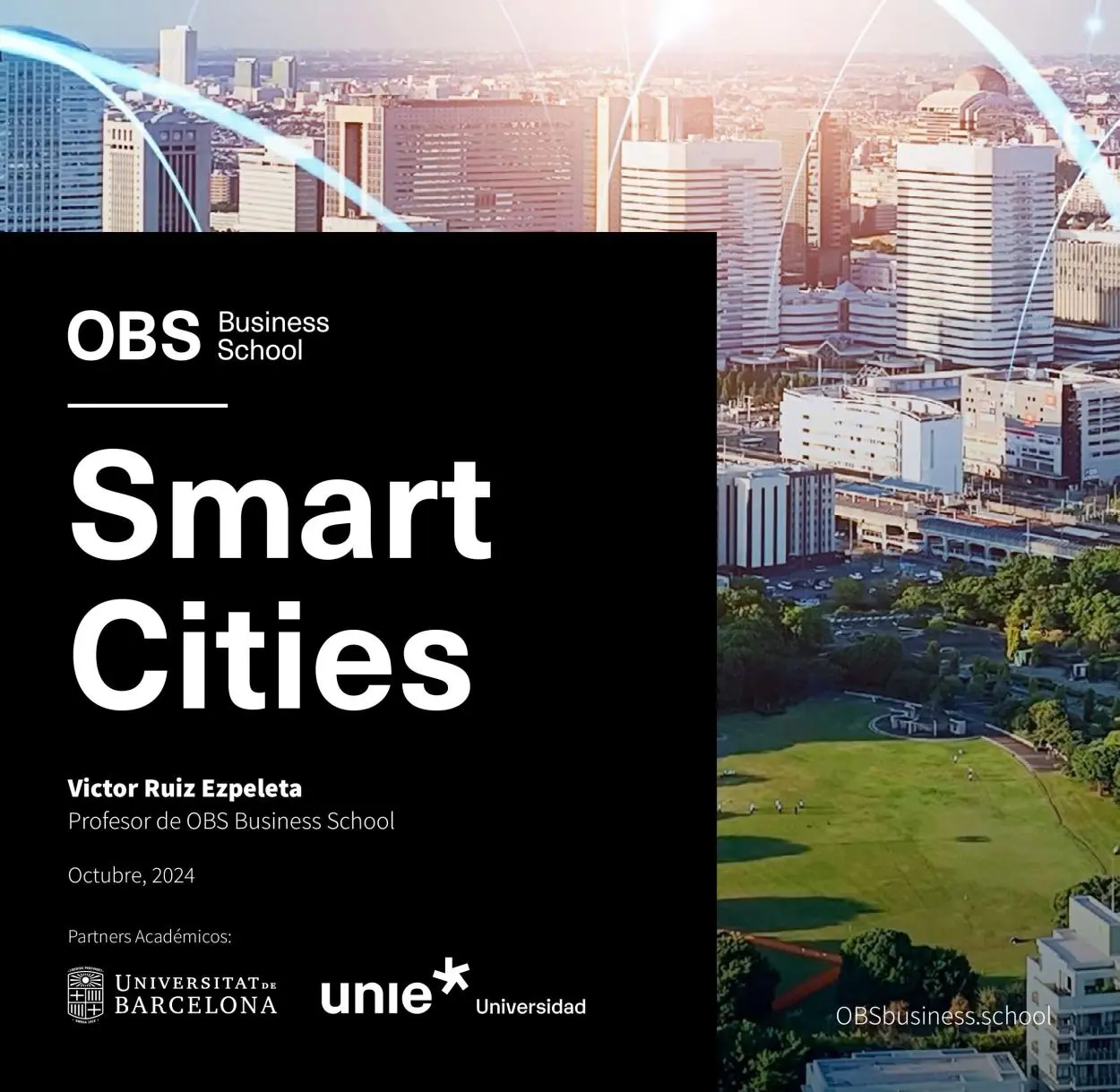
Citizen trust, ethics and cybersecurity are the great challenges of Smart Cities
OBS Business School, an institution belonging to Planeta Formación y Universidades, publishes the Smart Cities report directed by Professor Víctor Ruiz Ezpeleta, which analyses progress in European cities towards climate neutrality by 2050, the objective of the European Green Pact.
Cities, which occupy only 4% of the EU's land area, are home to 75% of its citizens and are responsible for 70% of global CO2 emissions. In this context, smart cities are key to greater efficiency and sustainability through the use of technologies such as the Internet of Things (IoT) and Artificial Intelligence (AI).

These technologies enable optimal management of traffic, infrastructure and energy, but present challenges such as privacy, cybersecurity and trust in data management. In addition, innovations in smart transport are emerging, such as congestion charging, tolls and smart parking systems. The impact of the autonomous car on the urban future is also anticipated. In energy and water, digitisation focuses on improving the energy efficiency of buildings and reusing water, following examples such as LEED-certified buildings.
London is a world leader in smart cities, with strong green infrastructure, 5G technology and advanced transport and energy systems. In Spain, Barcelona stands out for its use of IoT sensors and smart mobility projects, while Madrid has established itself as a pioneer in waste management and electrified public transport.
For more information, please use the following link.
